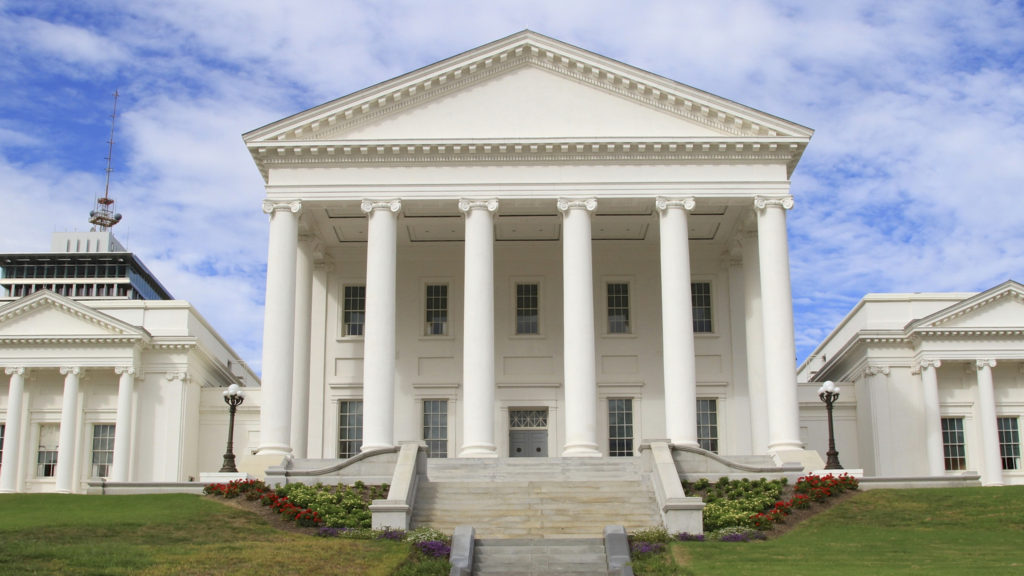The past two weeks of scandal in Richmond have raised alarms among Virginia Democrats considering how the fallout might impact November’s elections, when all 140 members of the General Assembly will be on the ballot.
Strategists, lawmakers, and party leaders have expressed worry at how dampened Democratic enthusiasm might impact voter turnout and volunteer efforts, particularly as fissures begin to open within the party’s coalition. Should the controversy continue, Governor Ralph Northam, Lieutenant Governor Justin Fairfax, and Attorney General Mark Herring might find it difficult to campaign for lawmakers who previously demanded their resignation, worried that campaign appearances would revive an unhelpful narrative during election season.
Beyond campaign appearances, though, the controversy surrounding the three statewide office holders threatens to deprive Democrats of another key resource: campaign cash.
While Northam, Fairfax, and Herring are expected to be largely absent from the fundraising circuit, the money held by their respective PACs presents an interesting conundrum for Democrats who want to benefit from it, but who also seek public distance from scandal-tainted leaders.
As of December 31st, 2018, the three reported over $1.8 million in the bank through their respective PACs. Northam led the pack with $1,272,986, while Fairfax reported $235,349, and Herring disclosed $327,811.
Collectively, the campaign cash is a valuable resource for Democrats seeking to win legislative majorities in the fall.
However, accepting contributions or independent expenditures from the embattled leaders could raise charges of hypocrisy from political opponents, who may wonder why a Democratic candidate would accept financial help from an officeholder on whom he or she called to resign or refused to appear with in person.
Likewise, many single-issue groups aligned with Democrats might also refuse this financial help in light of past statements calling for resignations.
While Republican strategists said this much money was unlikely to go unspent, the method by which it is routed to Democratic campaign efforts could prove to be a headache for the party’s candidates in the fall.
Pursuant to Virginia law, all expenditures from these three PACs would need to be disclosed to the state’s Department of Elections, even if the money is routed to a “dark money” group which need not report its receipt — however the reports may not occur in time to provide meaningful disclosure to the public.
State PACs report on a quarterly filing schedule. The last report before November’s election will cover activity from July 1st through September 30th, with a report due shortly thereafter. Activity from October 1st through the end of the year would not be disclosed until January of 2020.
This presents an interesting challenge for observers trying to ascertain which candidates are benefitting from money sourced from the embattled statewide office holders. In theory, Northam, Fairfax, and Herring could wait until October to contribute their accumulated cash to 501(c)4 groups, knowing that the only avenue for disclosure, their expenditures, would not occur in time.
Though a majority of lawmakers have called on at least one to resign, The Republican Standard was unable to locate any Democratic lawmakers who have publicly refused direct contributions, independent expenditure, or other indirect assistance from the three statewide officials or their PACs.
As scandal continues to consume Richmond, some of the more outspoken members may weigh in.
However, given the multiple, surreptitious ways to field this money for the benefit of campaigns, any public rejection would be without practical effect unless the candidate rejected financial assistance in all forms, directly or indirectly, and called on each PAC to return the money to donors, giving the voting public the reassurance that neither Democratic campaigns nor aligned groups will benefit from the tainted largesse.
Whether Democratic candidates will distance themselves from this money, and to what degree, remains to be seen.
Analysts have said that somewhere between 15 and 25 seats will be vigorously contested this fall. Even at the high end, the $1.8 million in these PACs, divided appropriately, could prove too tempting for Democrats wishing to maintain their distance via a zero-cost tweet.

